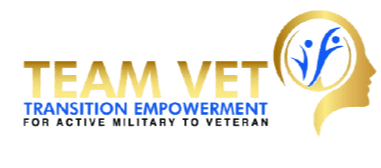Transitioning from Soldier to Civilian: Holistic Well-being

Posted on January 30th, 2024
Leaving the structured environment of military life and transitioning to civilian life can pose unique challenges for veterans. From adjusting to a new routine to navigating civilian healthcare systems, the journey from soldier to civilian requires a holistic approach to physical and mental well-being. In this guide, we'll delve into strategies and resources to support veterans in their transition and promote overall health and wellness post-military service.
Understanding the Transition Process
Transitioning from military to civilian life is a significant life change that can impact every aspect of a veteran's well-being. It's essential to recognize that the transition process is different for everyone and may involve challenges such as finding employment, accessing healthcare, building social connections, and managing mental health. By understanding the unique challenges veterans face during this transition, we can better support them in their journey to civilian life.
Prioritizing Physical Health
Physical health is a cornerstone of overall well-being, especially during the transition from military to civilian life. Regular exercise, proper nutrition, and adequate sleep are essential for maintaining physical health and resilience. Veterans can benefit from engaging in physical activities they enjoy, such as hiking, biking, or team sports, to stay active and connected with their communities. Additionally, seeking regular medical check-ups and accessing healthcare services tailored to veterans' needs can help address any underlying health issues and promote long-term wellness.
Nurturing Mental Health
The transition from military to civilian life can take a toll on mental health, with veterans facing challenges such as PTSD, depression, anxiety, and adjustment disorders. It's crucial to prioritize mental health and seek support when needed. Veterans can benefit from accessing mental health services, including therapy, counseling, and support groups, to address their unique experiences and challenges. Additionally, practicing self-care techniques such as mindfulness, meditation, and journaling can help veterans manage stress, improve resilience, and foster emotional well-being.
Building Social Support Networks
Social support is vital for veterans transitioning to civilian life, as it provides a sense of belonging, connection, and camaraderie. Building and maintaining social support networks can help veterans navigate challenges, access resources, and foster a sense of community. Veterans can connect with other veterans through organizations, clubs, and events, as well as reach out to family, friends, and mentors for support. By fostering meaningful relationships and connections, veterans can enhance their social support networks and thrive in their civilian lives.
Accessing Transitioning Support Services
At Internal Expressions, we understand the unique challenges veterans face during the transition from military to civilian life. Our health and wellness services are designed to support veterans in their journey to civilian life and promote holistic well-being. From personalized health coaching to transition support resources, we offer comprehensive services to help veterans thrive in their civilian lives. Contact us at [email protected] to learn more about how we can support you in your transition journey.
Embracing a Holistic Approach
Transitioning from soldier to civilian is a multifaceted journey that requires a holistic approach to physical and mental well-being. By prioritizing physical health, nurturing mental health, building social support networks, and accessing transitioning support services, veterans can navigate the transition process with resilience, strength, and optimism. With the right support and resources, veterans can embrace civilian life and thrive in their post-military careers and personal lives. Contact us today to learn more about
